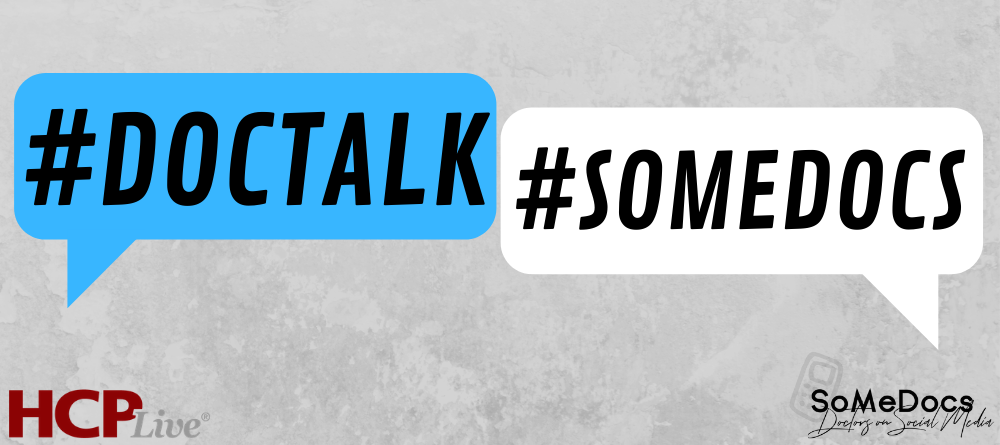Article
Dana Corriel, MD: Becoming a Physician Online
Author(s):
The SoMeDocs founder shares thoughts on doctors developing an online brand, the burden of being an uncredited expert on social media, and the benefit of committing to the platforms.

Last night, HCPLive® and Doctors on Social Media (SoMeDocs) hosted its first collaborative Tweet chat. Fittingly, the online discussion on doctors being, well, online, drew dozens of thought leaders, experts, and patient advocates to share their perspectives on the perks and problems of discussing healthcare through online forums and social media.
Few know the process better than moderator Dana Corriel, MD, founder of SoMeDocs. In an interview with HCPLive leading up to the chat, Corriel gave her thoughts on what social media has to come to mean to her as both a physician and marketing collaborator, and where the vast spaces of the internet still need to improve for the sake of the online doctor.
HCPLive: How do you view your online platforms? As an escape? An outlet? A bridge to communities?
Corriel: My SoMeDocs brand looks to bridge communication. The platforms in place are mainly there for networking purposes, to help physician brands grow online. My personal brand, @DrCorriel, was originally created as an outlet, but has since taken the role of an entertaining, thought-provoking website, which mixes some of my real-life experiences, along with my quirky commentaries, and out-of-the-box visual creations.
My personal brand was created when I realized that I needed an outlet, and that social media could provide that “personal satisfaction factor” outside of the exam room. It was something more than what my family could provide, because I was also prioritizing being with them. It was a way to grow as an individual, and as a professional.
By dabbling in my own social media platforms, I was able to, in essence, practice skills I didn’t otherwise use: writing, photographing (even if it was digital, with my iPhone), organizing, speaking.
These are all valuable assets to a physician, but ones we don’t typically have the time to massage through and get stronger in. They are all invaluable when it comes to changing our role within the healthcare, regardless if we do it from a personal perspective (be healthier, happier physicians), or from a grander perspective (focus on, and change, healthcare as a whole).
What freezes some physicians is not having exact focus, when it comes to a plan. I’m here to tell these doctors that you can start out broadly, dabble, and you can slowly figure out what you want to do. The nice thing about social media is that it’s forgiving, when it comes to your path. In fact, the journey of many other professions involves repeated failing and getting back up.
We may experience it less in healthcare, and that may be something that holds us back from trying this out, but given the change in how we communicate, it’s a great mantra to take on.
In my personal experience, my own voice evolved from being more scattered, to leading a large network on branding, content creation, and strategizing—and to finding my way from physician to entrepreneur. I teach others that they can do the same, and find the right fit where their voice is concerned, by simply pushing past barriers and taking the unknown on. I’m hoping that I help in paving the way where it comes to that path.
HCPLive: What online or social media uses you believe to be detrimental to you and your peers?
Corriel: The ability to be misquoted, misrepresented, are misunderstood are not negatives of social media—but are playing out in real-time, as I type. Well-intentioned professionals are having their words twisted by various social media groups, in smear-type campaigns, and it’s a shame. Accounts represent real-life humans. Let’s remember that.
HCPLive: How do you want to see online platforms and social media improve for you and your peers?
Corriel: I’d like to see physicians gain more respect online. I’d like to see our credentials recognized, even if social media just equalizes the playing field. Your local doctor has a lot to say, even where it comes to the online discussion.
HCPLive: How would you like to see physician respect better manifest through online/social channels?
Corriel: There isn’t a straightforward answer to this. By nature of social media being somewhat of a free-for-all at the moment, it’s a setup for less structure, more mayhem. Therefore, there seems to be a lack of respect for advanced degrees.
Because anyone can say anything, what we’re seeing is the rise of those with clever marketing skills, and the ability to garner followers. There isn’t a place for respect of professionals, unless we start to somehow be included in conversations, and gain momentum as experts in our field. And that’s not experts because we say we are—but experts because our degrees say it.
SoMeDocs is an online platform that provides physicians a space to network, collaborate, and grow their own brands. Physicians with interest in becoming thought leaders, growing their practice, connecting with a target audience, and advancing their careers through online growth and networking can learn more here.





